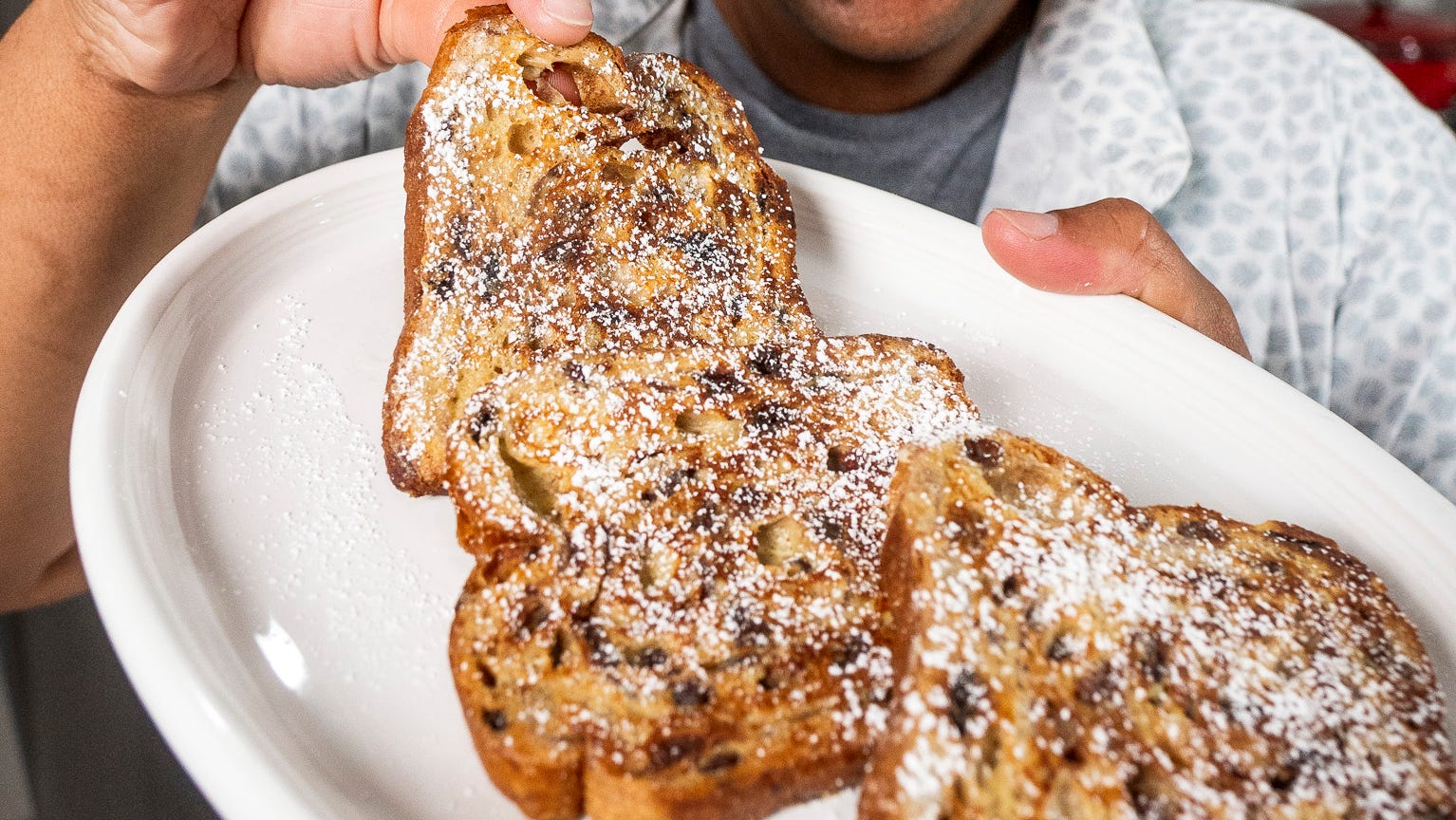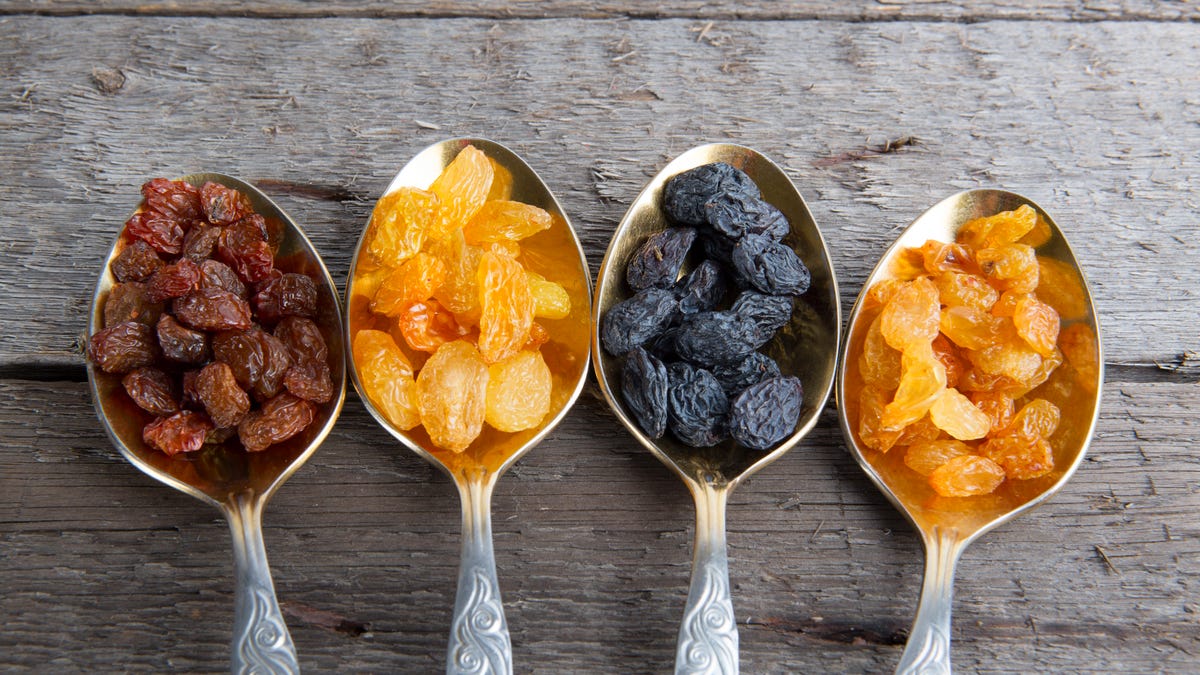
French toast recipe with cinnamon raisin bread
Celebrate National Cinnamon Raisin Bread Day with this french toast recipe.
Problem Solved
If you’re looking for a snack on the go, a sweet topping to your morning cereal or the star ingredient of an oatmeal raisin cookie, raisins are the versatile dried fruit that you can easily incorporate into a balanced dietary pattern.
Raisins are dried grapes, meaning they’re naturally quite nutrient-dense. They’re high in fiber, and pack a punch with a few essential minerals. We asked an expert to break down everything you need to know about the nutritional benefits of raisins, and how they stack up against grapes.
What are raisins good for?
Yes, raisins are good for you. They have a similar nutritional profile to other kinds of fruits, says Camila Martin, a registered dietitian nutritionist with UW Health. They are high in carbohydrates and contain a little bit of protein and fat. They’re also a relatively good source of iron, magnesium and potassium, says Martin.
Raisins are also an excellent source of dietary fiber, says Martin. Over 90% of women and 97% of men don’t meet the daily recommended intake of dietary fiber, according to the Dietary Guidelines for Americans 2020-2025. We know that having an adequate amount of dietary fiber is essential for reducing your risk of coronary heart disease and supporting gut health. So, in the context of a balanced dietary pattern, eating raisins could definitely contribute to meeting your daily fiber intake.
What’s healthier: Grapes or raisins?
When comparing grapes and raisins, you might be wondering: Do grapes become less nutritious when they become raisins?
There are a few different ways to prepare raisins, from drying them in the sun to using a food dehydrator. During these processes, the water content from the grape is evaporated, and the raisin essentially becomes a super concentrated grape.
From a nutritional standpoint, grapes and raisins differ slightly. Raisins are higher in sugar and carbs than grapes are, but they’re also a better source of dietary fiber, potassium and iron, per WebMD.
So, one isn’t necessarily healthier than the other, with pros and cons for each. It ultimately depends on your health goals, says Martin. Raisins are more energy-dense and are better source of fiber, though they also have a higher concentration of sugar. Because grapes have higher water content, they’re a snack that’ll probably fill you up faster than raisins.
Do raisins spike blood sugar?
“There are three major macronutrients that are the building blocks of our food: carbohydrates, fat and protein,” says Martin. Raisins, being a fruit, are primarily made of carbs (which increase your blood sugar).
So, consuming raisins may up your blood sugar levels, but because they contain a good amount of dietary fiber, minerals and protein, it should help slow the spike, says Martin.
To prevent a potential blood sugar spike, raisins should be consumed in moderation. “Whenever we’re having a snack or meal that’s primarily carbohydrates, make sure it’s paired with something that has a healthy fat or protein,” says Martin. “That’s going to take away the peaks and valleys that can sometimes show up from foods that contain higher contents of one of those macronutrients.”
It’s also important to point out that not all sugar is bad. In fact, consuming natural sugars found in whole foods like fruits, vegetables and dairy support essential functions in the body, such as providing energy. A diet rich in fruits, vegetables and whole grains may lower your risk of developing certain chronic diseases, including diabetes and coronary heart disease, per Harvard Health.
Ultimately, if you’re following a balanced diet in which you are consuming a wide variety of fruits and vegetables, raisins are a great food to add to your weekly rotation.









